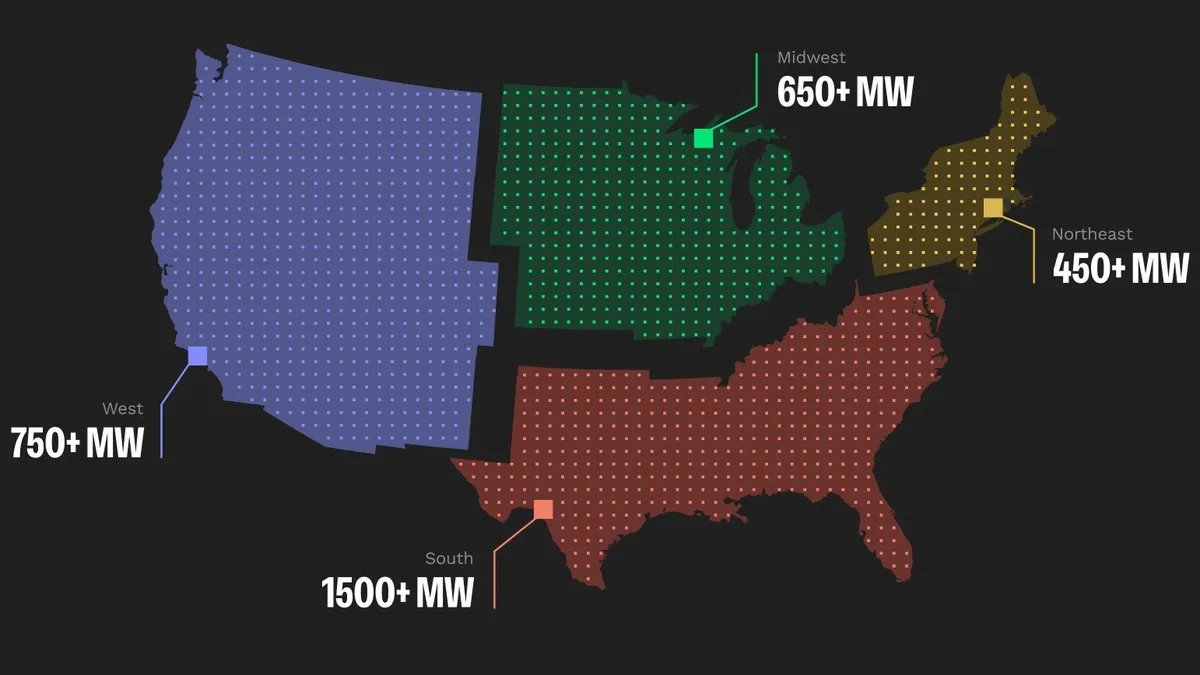A year ago, news broke that Warren Buffet was planning to purchase Oncor. Does a year make any difference?
The July 2016 revelation came on the heals of Hunt Consolidated abandoning its own bid for the Texas utility. State regulators couldn't be sold on the firm's complex management plan, and at the time Buffet's deep pockets looked like the investment stability the Public Utilities Commission was looking for.
But then NextEra stepped in. Stepped in again may be more accurate, since before Hunt the Florida-based holding company was also thought to be the lead bidder. But NextEra's $18 billion bid was ultimately rejected by the PUC (and twice denied rehearing) this spring.
And so here we are again. July. Oncor's future remains uncertain, still mired in the bankruptcy proceeding of its parent, Energy Future Holdings. And once again, Berkshire Hathaway has come knocking.
From Oncor's perspective, the year makes a big difference. Bidders have come and gone, applications have been filed, rejected and withdrawn, leaving it more desperate for a buyer.
Analyzing Berkshire's bid shows how the company has shaped its plan to fit Texas regulators' cautious approach. But there now appears to be another bidder in the wings.
Elliott Management is EFH's largest creditor and the company has been making overtures to purchase Oncor. But with no formal bid, the company could simply be pushing to raise Berkshire's price.
This has been a "highly unusual" bankruptcy, said Angelo Thalassinos, senior distressed debt legal analyst at Reorg Research.
Hunt's proposal was "essentially conditioned to death," he said, "and the second round was a complete denial."
"Now, we face a third round where there's a deal signed up and then a very large and well-funded creditor that appears to be also coming in with a potential alternative," Thalassinos said.
Berkshire has done its homework and brought a range of stakeholders on board before it presents its case to regulators. Oncor CEO Bob Shapard has been making the rounds, and recently appeared on Jim Cramer's "Mad Money" to talk up the deal. The utility is solidly behind Berkshire's bid.
Where might Berkshire Hathaway's bid succeed where Hunt and NextEra failed? Analysts say the key to Buffett's bid may be its simplicity, but his trademark thriftiness could see the free-spending rival sneak in under his nose.
"It seems like Berkshire is addressing a lot of the concerns regulators had in their rejection of Hunt and NextEra," said Stacy Nemeroff, a power and utilities analyst for Bloomberg Intelligence. "Berkshire is not planning on adding a complex financial structure to make the deal work."
Third time's the charm?
Each of the previous offers to purchase Oncor involved significant reworking of the corporate structure.
Hunt envisioned converting Oncor into a real estate investment trust, a structure untested on a utility of Oncor's size.
NextEra sought to rework Oncor's ringfencing provisions to give it access to dividends from the regualted utility. Regulators balked at both offers.
Berkshire is offering $9 billion in cash for the parent company EFH, which pegs the deal value around $18.1 billion. And, key to convincing the PUC, Berkshire's offer leaves Oncor ringfencing in place.
In 2007, Oncor was taken private in a leveraged buyout. Goldman Sachs, KKR and Texas Pacific Group bought the company, then known as TXU Corp., and transformed it into Energy Future Holdings. As Shapard explained on television, "it was essentially a leveraged bet on natural gas."
Wary Texas regulators, however, required EFH to wall off Oncor in their deal approval, separating the T&D company's finances from EFH's larger portfolio of generation.
"That turned out to be quite insightful," Shapard said. Commodity prices plunged and Energy Future was thrown into bankruptcy, but Oncor's operations were not impacted.
"Berkshire has committed to an independent Oncor board with control over the ability to upstream dividends," said Thalassinos. "The deal largely allows the current corporate structure to remain in place, which importantly, leaves the Oncor ringfence in place."
That's exactly what NextEra refused to do. In rejecting the company's offer, regulators said they could reconsider if NextEra would make changes to ensure Oncor's independence and financial security. But NextEra CEO Jim Robo insisted his company would hold firm on issues of Oncor's board members and finances.
"We think we would be a terrific owner of Oncor," he said in April, but "we will not be accepting any conditions that would not allow us to appoint the majority of the board or have access to the dividends."
Under Buffett's offer, Berkshire Hathaway Energy would indirectly own Energy Future Intermediate Holding Company's 80% interest in Oncor, leaving the current corporate structure in place.
Berkshire, as a key developer of transmission in Texas, "has a strong relationship with regulators in Texas," said Nemeroff. And the company has already won the support of eight key parties, including cities served by Oncor, Texas Industrial Energy Consumers, the Office of Public Utility Counsel, and staff of the PUC.
"Berkshire appears to have done a good amount of legwork prior to executing the merger agreement," said Thalassinos. "They signed up the major regulatory participants, and it appears they are all on board."
But one possible hiccup? "It looks like what [Berkshire is] offering is slightly lower," Nemeroff said. "After two rejections, the number of buyers that could be approved is limited."
Enter Elliott Management. The firm and funds it advises own about three-quarters of EFIH's unsecured bonds. Now they say they now want to purchase Oncor at a higher price than Berkshire.
Elliott's $9.3 billion offer would peg the company's value at $18.5 billion. Berkshire's lower offer, the company pointed out, "reflects a valuation that is hundreds of millions of dollars below Berkshire’s bid from one year ago."
Elliott has also committed to maintaining the Oncor ringfence, and would also leave in place the 20% minority ownership of Oncor by Borealis and GIC.
But so far, the offer is theoretical. In a letter to Oncor's Board of Directors, the company acknowledged "it has not obtained pre-approval from PUCT Staff for its proposed transaction." But the company maintains its bid is legitimate, and not motivated by what creditors see as a low-ball offer from Berkshire.
"We also want to address the possible misperception that Elliott could be motivated in it efforts by anything other than a sincere desire to consummate its proposed transaction," Elliott wrote to the Board. "Our desire to own Oncor and help bring about a successful emergence from bankruptcy for all of its stakeholders is completely sincere."
According to Nemeroff, Berkshire's bid is likely still in the lead. The company declined to comment beyond information already released publicly.
"I'm not sure regulators would be as open to [the Elliot offer], considering they are a financial buyer, and considering with Hunt they didn't want a complex financial structure to make the deal work," she said























